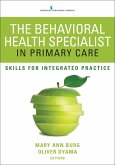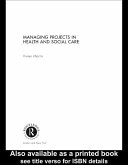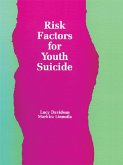"Primary care is the new frontier for preventing suicide and Bryan and Rudd are its pioneers, offering wisdom and guidance based on their experience in bridging behavioral health care to the primary health care setting. This is a truly significant reference."
Lanny Berman, PhD, ABPP
Executive Director, American Association of Suicidology
President, International Association for Suicide Prevention
"In their pragmatic and useful book titled Managing Suicide Risk in Primary Care, Bryan and Rudd provide an essential reference guide for health care professionals working in primary care settings."--PsycCRITIQUES
"This book offers a comprehensive approach that can help the physician become competent to assess and intervene with suicidal risk as well as lessen his or her anxiety when dealing with patients at suicide risk. Needless to say, this can be a life and death matter for some patients... One of the great strengths of this book is how they have adapted insights and interventions from traditional mental health care for the uniqueness of primary care... I highly recommend this book for any professional working in primary care. It will be taken off the shelf for reference and reviewed many times in the course of a career."--Family Medicine Journal
Roughly forty-five percent of individuals who commit suicide make contact with a primary medical provider in the month prior to their death; nearly twenty percent make contact within one day of their death. This practical guide demonstrates how the primary care setting-an increasingly important provider of mental health treatment-can be an effective place for preventing suicide and providing ameliorative care.
Firmly grounded in the clinical realities of primary care, Bryan and Rudd address the key issues that often plague behavioral health consultants (BHCs) in such settings where appointments are brief, patient contact is limited, and decision making and treatment are collaborative. They offer effective strategies for BHCs to manage patients across a suicidal crisis beginning with the development of procedures prior to crisis, steps to take during a crisis, planning for post-crisis care, transition to specialty mental health facilities, and legal issues.
Key Features:
Lanny Berman, PhD, ABPP
Executive Director, American Association of Suicidology
President, International Association for Suicide Prevention
"In their pragmatic and useful book titled Managing Suicide Risk in Primary Care, Bryan and Rudd provide an essential reference guide for health care professionals working in primary care settings."--PsycCRITIQUES
"This book offers a comprehensive approach that can help the physician become competent to assess and intervene with suicidal risk as well as lessen his or her anxiety when dealing with patients at suicide risk. Needless to say, this can be a life and death matter for some patients... One of the great strengths of this book is how they have adapted insights and interventions from traditional mental health care for the uniqueness of primary care... I highly recommend this book for any professional working in primary care. It will be taken off the shelf for reference and reviewed many times in the course of a career."--Family Medicine Journal
Roughly forty-five percent of individuals who commit suicide make contact with a primary medical provider in the month prior to their death; nearly twenty percent make contact within one day of their death. This practical guide demonstrates how the primary care setting-an increasingly important provider of mental health treatment-can be an effective place for preventing suicide and providing ameliorative care.
Firmly grounded in the clinical realities of primary care, Bryan and Rudd address the key issues that often plague behavioral health consultants (BHCs) in such settings where appointments are brief, patient contact is limited, and decision making and treatment are collaborative. They offer effective strategies for BHCs to manage patients across a suicidal crisis beginning with the development of procedures prior to crisis, steps to take during a crisis, planning for post-crisis care, transition to specialty mental health facilities, and legal issues.
Key Features:
- Targets techniques for suicide assessment and prevention in primary care settings
- Addresses the clinical realities of working in a primary care setting and how to adapt them to the needs of suicidal patients
- Covers clinical protocols, legal issues, and risk management
- Discusses the formation of collaborative relationships with patients and staff
- Provides brief interventions with suicidal patients and post-crisis strategies
- Written by leading specialists in behavioral health, primary care, and suicidology
Dieser Download kann aus rechtlichen Gründen nur mit Rechnungsadresse in A, D ausgeliefert werden.









